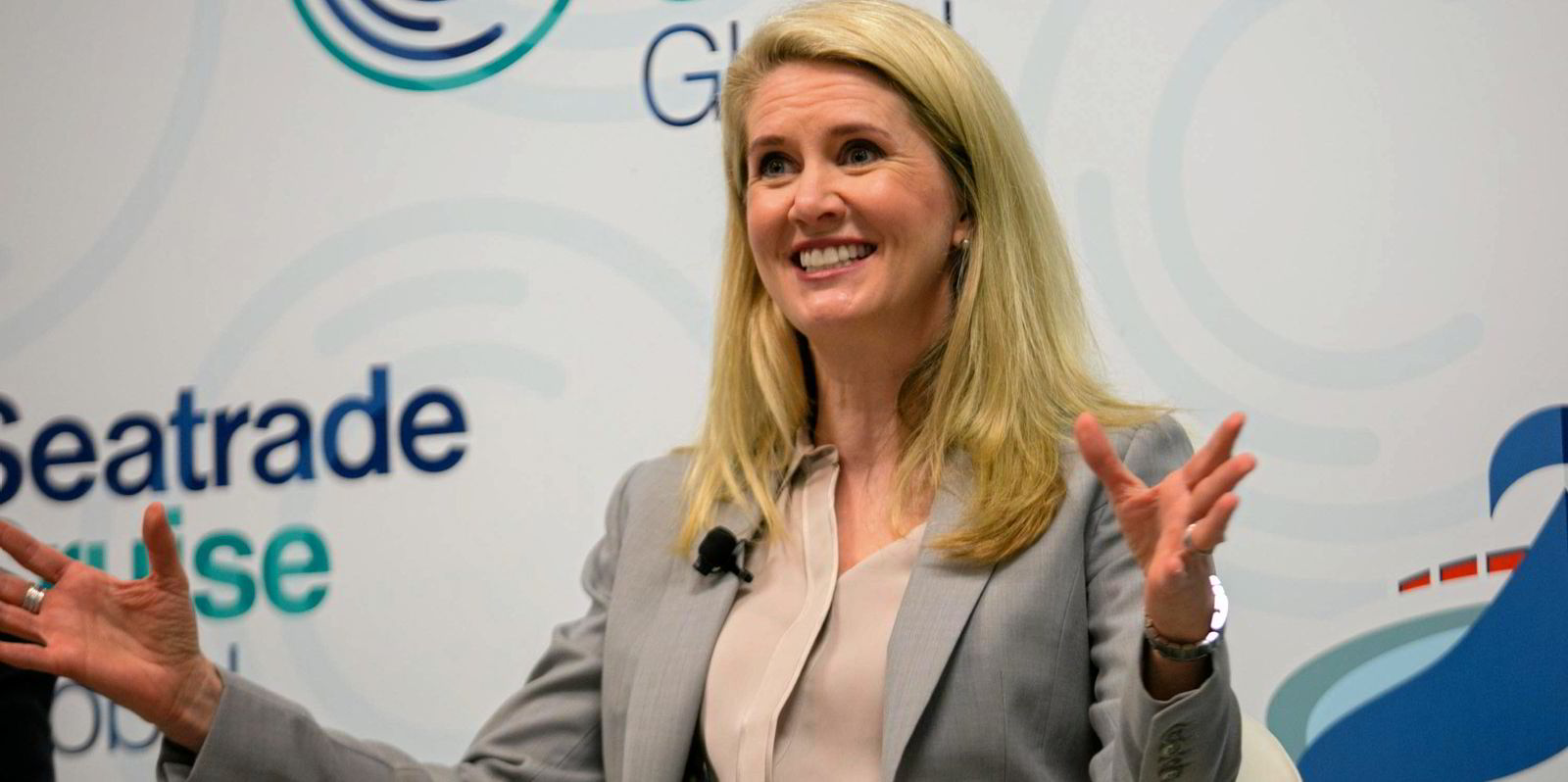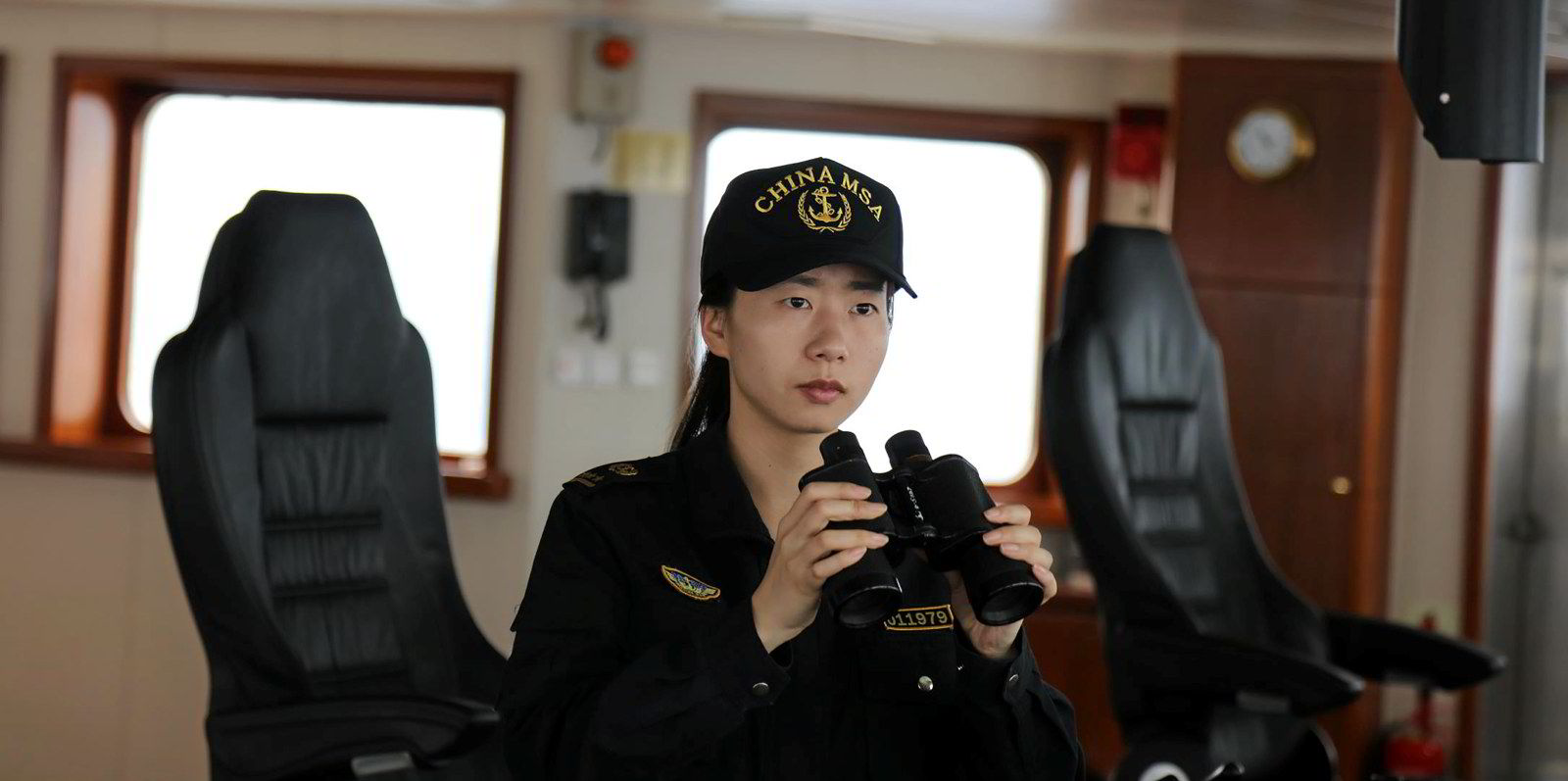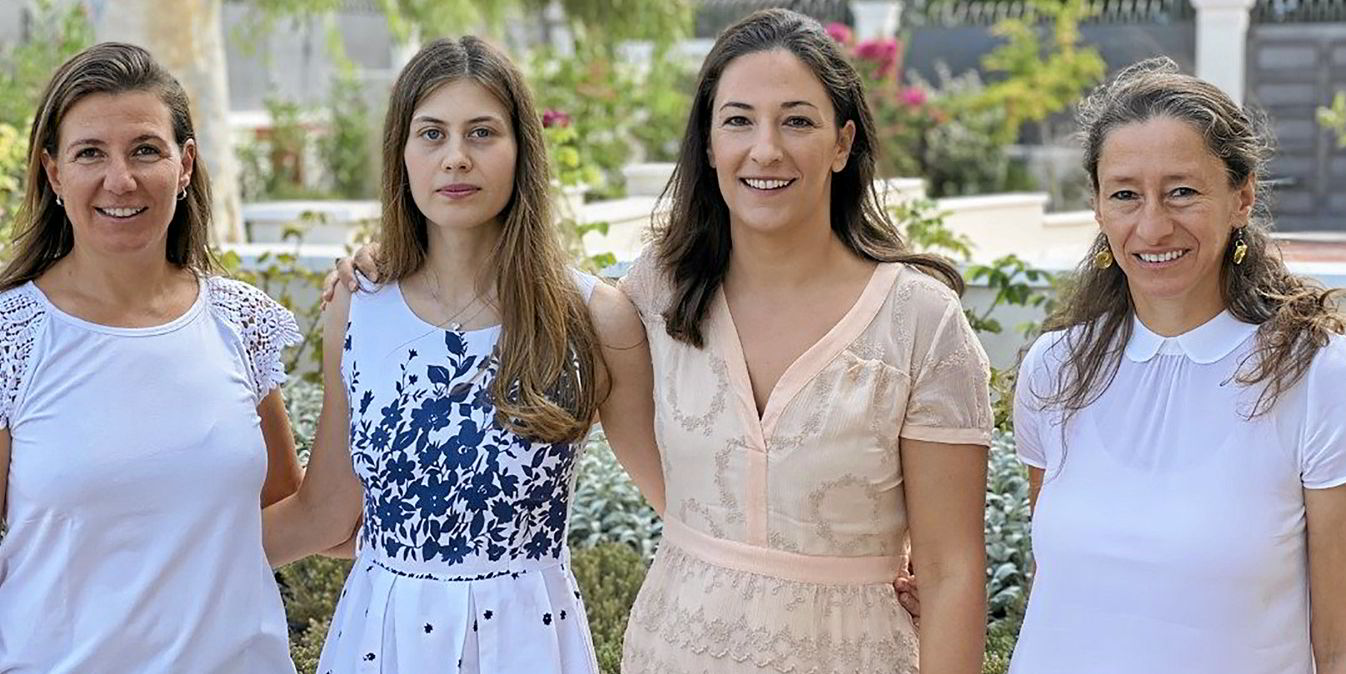It is well known that men make up the vast majority of seafarers and shoreside top executives in shipping.
But as investors focused on environment, social and governance (ESG) look to gender diversity as a key factor in the "S" in the increasingly important acronym, they are unlikely to find significant insight into how shipowners are aiming to tackle this from companies' ESG reports.
Maritime's onshore workforce may be closer to achieving gender balance than in seafaring, but women fill nearly all of shoreside's lower-level roles, according to research.
The International Maritime Organization has said that 98% of seafarers are men.
Onshore, about 45% of maritime's global onshore workforce were females last year, according to analysis by Spinnaker Global and the Maritime HR Association released of March.
But females occupied 95% of administrative jobs offered on land but only 5% of executive leadership team roles.
The average salary of a female in Spinnaker's UK sample came to £38,500 ($53,740), compared to £68,000 for men.
A TradeWinds review of dozens of shipping companies’ environment, social and governance (ESG) and sustainability reports revealed a collective indifference towards improving gender balance.
Most of the 31 reports across the cargo shipping, cruise and offshore vessel sectors disclose the number of men and women on staff, but only four mention initiatives to improve the gender imbalance.
Three of the companies had no mention of gender balance in their ESG reports.
The findings come as gender diversity is among the factors that have attracted increased attention from both investors and lawmakers, according to lawyers in the ESG practice at global law firm Mayer Brown.
"Investors are assessing the gender equity of a business in connection with a range of issues, including the ability of a business to identify, address and respond to ESG risks and opportunities more broadly," Hong Kong-based lawyers Mark Uhrynuk, Susanne Harris and Alexander Burdulia wrote in a March report.
Of the ESG reports reviewed by TradeWinds, 19 provided a gender breakdown.
The median company had 68% male representation on their onshore staffs, with tanker giant Euronav showing the most balance in its onshore staff and MPC Container Ships presenting the least, with a workforce of 90% men.
US-listed Teekay Corp, which owns 130 tankers and LNG carriers in total, mentioned improving its gender balance this year but did not give any specifics as to how it planned to do that. The company's sustainability report for 2020 said less than 1% of its 2,011 seafarers were female, but 11% of 158 onshore staffers were women.

In dry bulk, Golden Ocean Group said it prohibits worker discrimination and harassment, and that it follows the UN Guiding Principles on Business and Human Rights.
The owner of 88 bulkers reported that less than 1% of its seafarers and one-third of on-shore staff are female.
No mention of gender equity
While some reports just touch on the topic of gender equity without including plans to improve it, others do not address it all.
The latest ESG reports by boxship owner Costmare, bulker player Pangaea Logistics Solutions and Siem Offshore made no reference to gender balance but address environmental stewardship and employee welfare.
The trio did not respond to TradeWinds' request for comment.
Most shipowners' ESG reports only mentioned following internal or external guidelines for hiring and employee without outlining any initiatives to improve diversity.
But one of shipping's largest names described proactive measures towards creating a greater balance between male and female employees, but they number in the few.
AP Moller-Maersk, an operator of 708 boxships, is working to deter discrimination and unconscious bias towards men and put more females in leadership roles, according to its ESG report for 2020.
Maersk's global staff of almost 84,000 employees is 28% female, but the Danish company is trying to push that percentage even higher.
“We have seen some progress, but we would like to accelerate it,” spokeswoman Rachel Anna Osikoya told TradeWinds.
Women cruise to the top
Carnival Corp — the world's largest cruise provider with 91 ships — reported the highest percentage of women in both shoreside and seafaring jobs.
The company appointed several female executives across nine brands since 2013 under chief executive Arnold Donald. The New York-listed behemoth also works with non-profit entity Catalyst, of which Donald is a board member, to train female workers on career development.
The company said in its Sustainability Report for 2019 that 17.8% of about 92,000 seafarers are women, however, due to a gender imbalance among job seekers.
But 57.9% of its 14,000 shoreside workers are female.
TradeWinds looked through ESG reports by 31 shipowners to see what they were doing to improve gender equity in maritime.
The table below groups these owners, most of which include gender data, to the degree to which their reports address it.
Make no mention of gender or women
Siem Offshore, Pangaea Logistics, Costamare
Mention gender or women but no equity improvement plans
Eagle Bulk Shipping, Star Bulk Carriers, Diana Shipping, Golden Ocean Group, Pacific Basin, Global Ship Lease, MPC Containerships, Frontline, Performance Shipping, Scorpio Tankers, International Seaways, Euronav, Matson, DHT Holdings, Tidewater, BW Offshore, Seacor Marine, Euroseas, Teekay Corp, GasLog, Flex LNG, Golar LNG, Mediterranean Shipping Co, Evergreen Line
Mention initiatives to improve gender equity
AP Moller-Maersk, CMA CGM, Subsea 7, Carnival
Females wanted
Tidewater, which owns 157 OSVs, did not mention any initiatives either in its ESG report for 2020 but said that gender equity is difficult to achieve in the offshore sector.
About 24% of the company's shoreside employees are female.
"The offshore sector has always struggled to attract women into the industry for a variety of reasons, one being the relatively small vessel sizes with close living quarters on board," spokesman Jason Stanley told TradeWinds.





